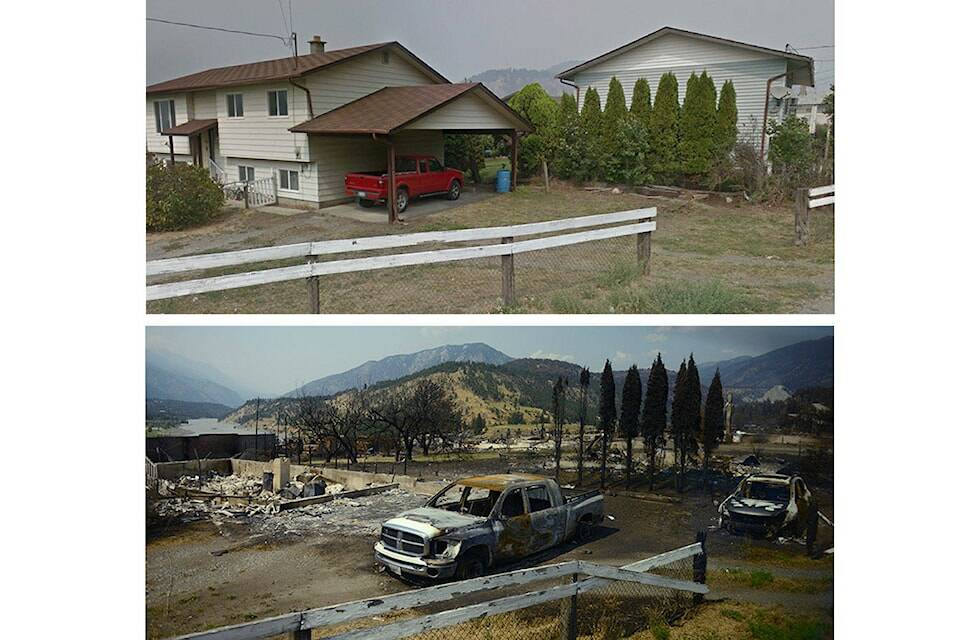The trauma of experiencing a wildfire up close is never far away for Meghan Fandrich.
A resident of Lytton, she saw her town largely razed by a wildfire in 2021.
While her house didn’t burn due to helicopter water bombing efforts, she lost the building to the fire that housed her coffee shop business and the core of her community was gone.
Today, she lives in the same home with her seven-year-old daughter. Her parents live nearby.
But her town remains a shell of its former existence, as investigations continue to determine the actual cause of the fire, while the provincial government drags its feet on financing the town’s reconstruction.
Her insurance coverage is not sufficient to rebuild what was lost. And escalating real estate prices elsewhere make it financially challenging to sell her property if she could find a buyer, and move on.
Fandrich said when a wildfire is put out and the firefighting effort moves on, the shock and trauma of enduring such a natural disaster don’t fade quickly.
She looks at the property loss from the Shuswap and Okanagan wildfires and knows the uphill climb facing many of those folks.
“I lost my community. Everything that was normal in my life was suddenly gone,” she said.
“My house is on the south bank of Lytton creek and the wind blew the fire the north…people tell me I was lucky and I understand why they say that, because my house was saved, but I don’t feel lucky.”
Two years later, that wreckage left behind still faces her and other residents hoping to rebuild their town, a historic trading post in B.C.’s past where the Fraser and Thompson Rivers merge.
As she struggled with that trauma, Fandrich said her feelings of isolation began to be replaced by feelings of connections to others who shared in her experience, which to her was part of the process of healing.
That led her to write about her own feelings of loss, emotional suffering and resurgence to start over, captured in her new book Burning Sage.
A book launching tour will include a stop in Kelowna for an event at the Alternator Gallery in the Rotary Centre of the Arts, 7 p.m., on Wednesday, Sept. 20.
“To me, it is not just for me to show up and sell my book. I want to go around and have conversations with people to talk about their fire experiences and acknowledge the collective feelings of loss we all carry with us,” she said.
She said those who lost their homes in the Okanagan from the Grouse Complex wildfires will face the same emotional turmoil she has wrestled with.
“With a wildfire like we experience in Lytton, afterward the highway washes out, there are mudslides, the trees are dead and fall over and knock out the power, the ongoing boil water advisories…it took me about a year, into our second fire season after the fire where I started to process everything better,” Fandrich said.
“So much of what was normal in my life was now just gone.
“It came out as a poem initially. Then came another and another as all these conscious memories started to come out as I continued through this emotional arc of trauma.”
She compared it to the COVID pandemic experience, something we all went through together but still felt isolated from one another.
“We were so disconnected it seemed but logically we knew everyone was dealing with it,” she said.
“It is the same with a fire. There is a sense of isolation and devastation that comes to those who experience it, but if you share those feelings with others, talk about it, that helps the process of healing and moving forward with your life.”

